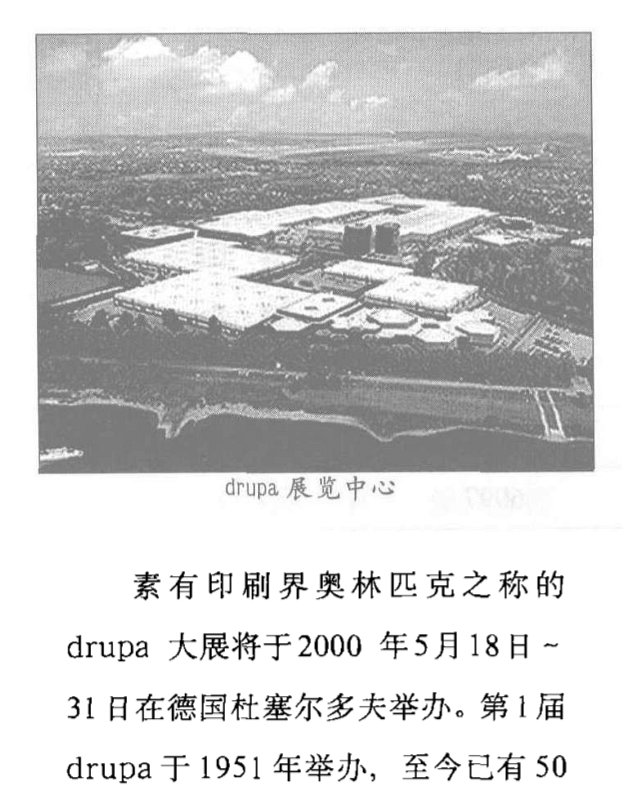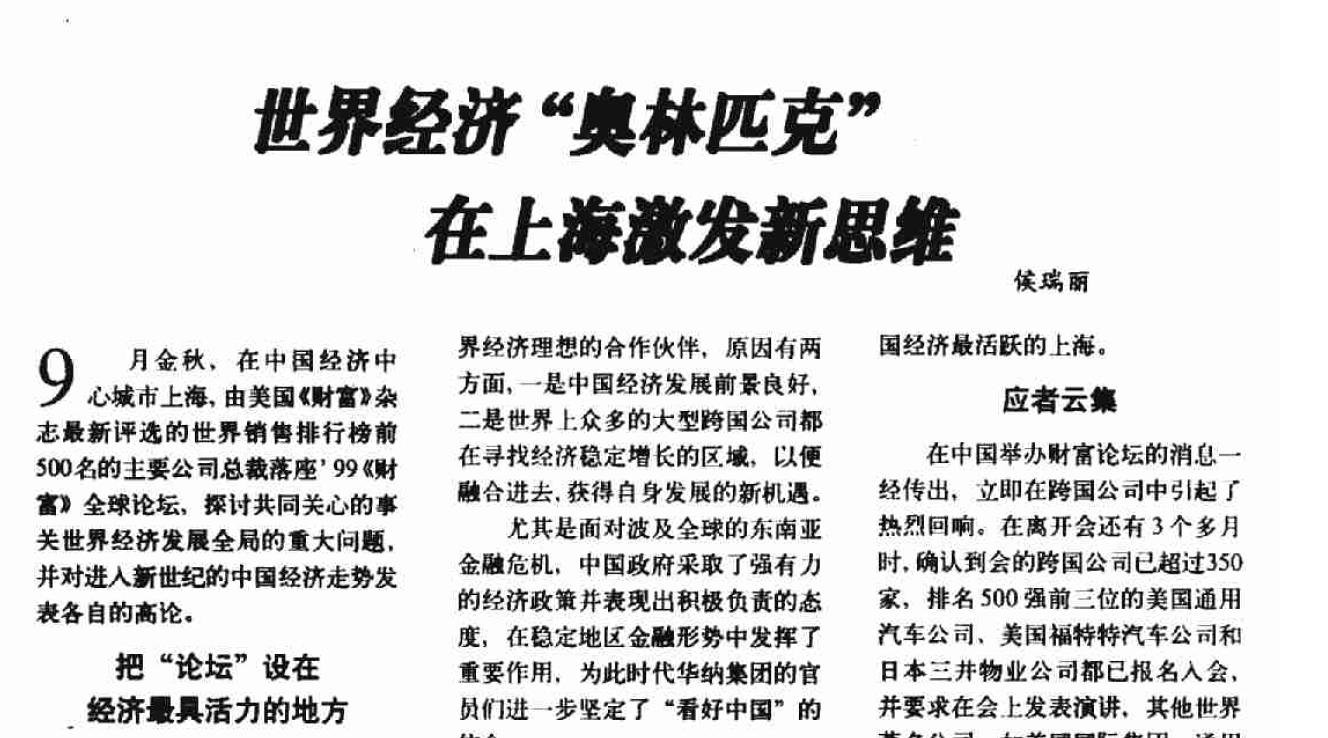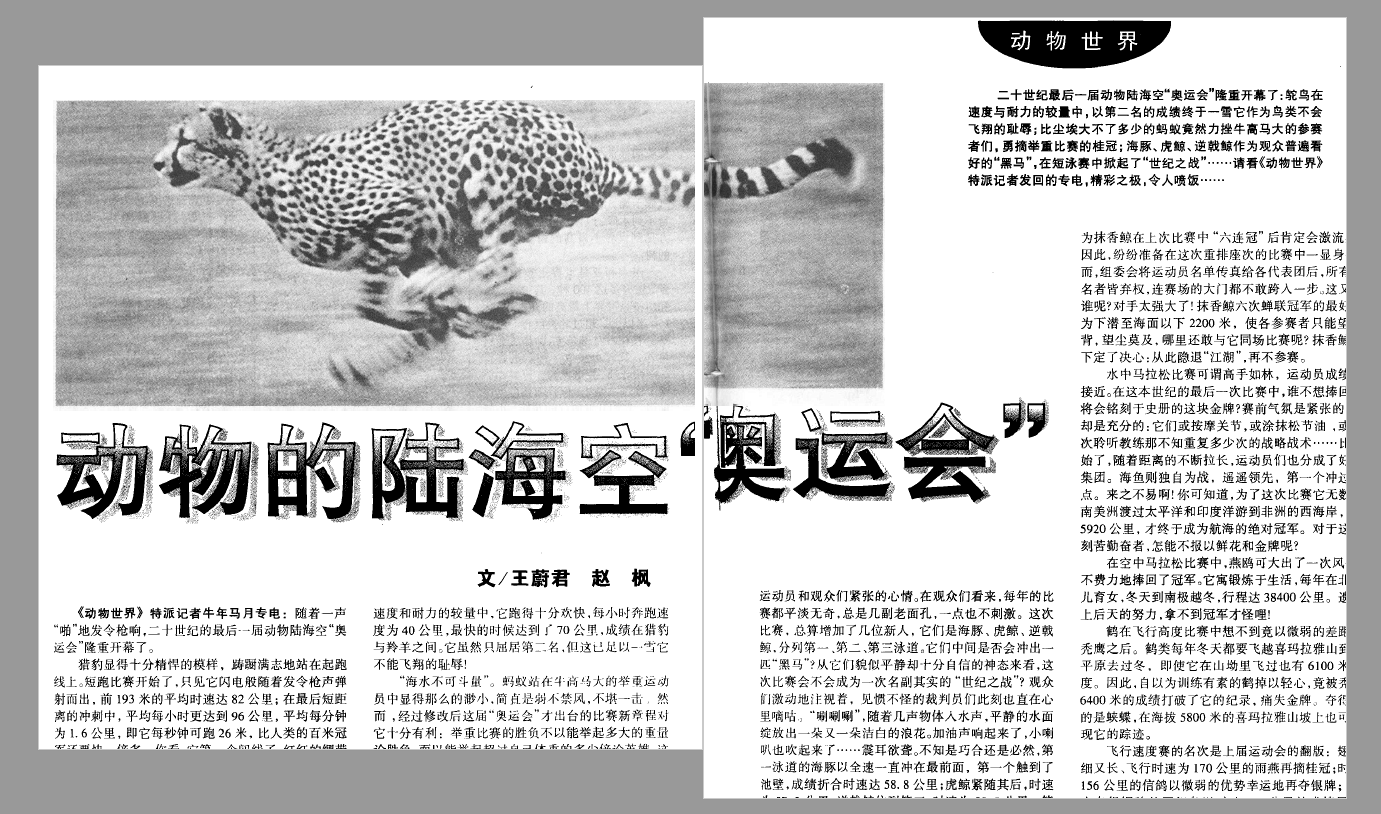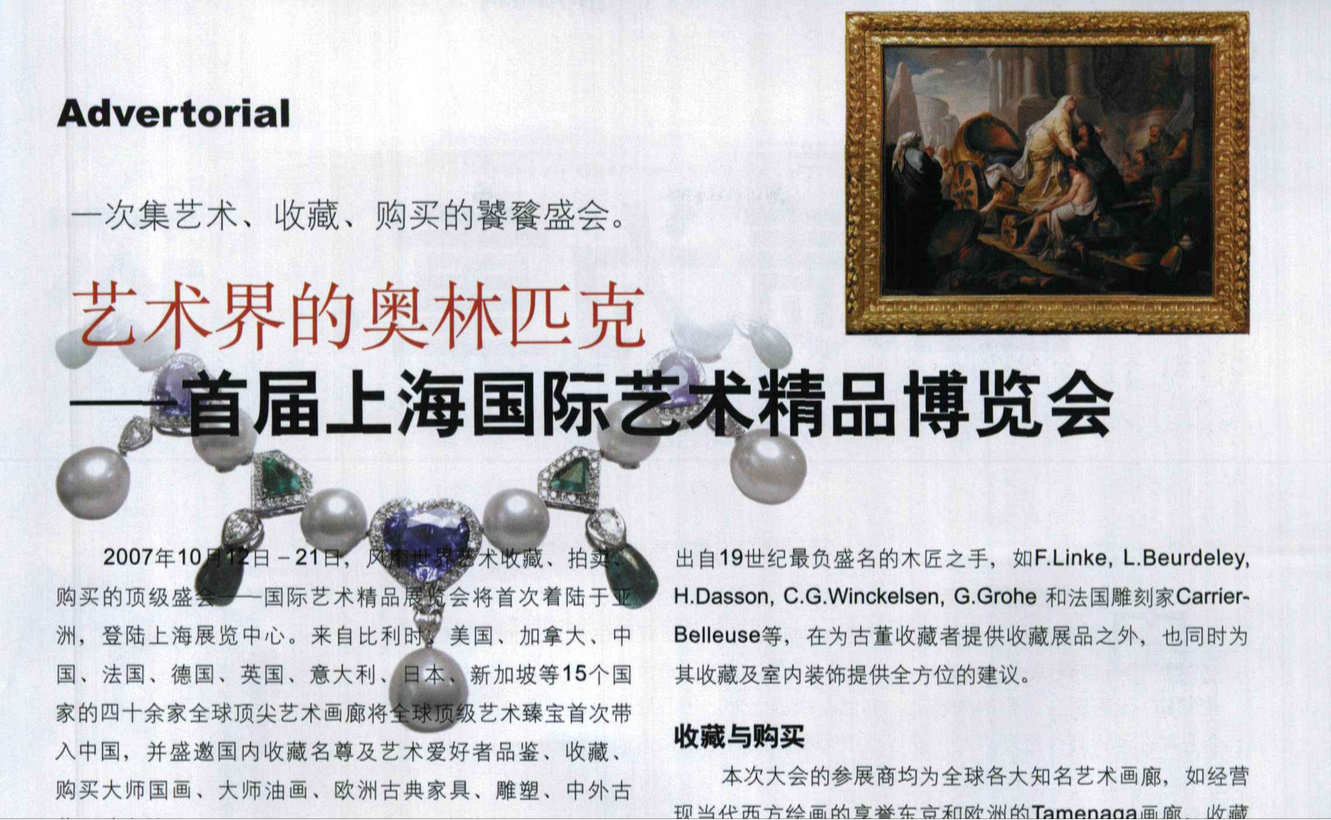Participants in the faking Olympics are athletes from a range of industries who try to get attention by using the word “Olympic.” Their spaces of competition lie beyond the athletic field and can be found in every crevice of society. The International Olympic Committee is usually powerless to stop them.
The national art exhibition has opened! Visit the Olympics of the art world!
The Olympics of arts and crafts has arrived at Guocuiyuan!
The Olympics of the Chinese contemporary art world: This edition of the Nanjing International Art Festival is an Olympic Games for the art world.
The International Calligraphy and Art Symposium Organizing Committee was founded in New York on December 16.
The International Congress of Aesthetics, known as the “Olympics of Aesthetics” will be held at Peking University from August 9 to 13.
The Olympics of watercolor painting! Visit the First Global Watercolor Exposition!
The press conference for the Blackpool Dance Festival was held in Baoshan District, Shanghai. The Blackpool Dance Festival is considered the Olympics of ballroom dance. Founded nearly one hundred years ago in Blackpool, UK, the festival was first brought to China in 2016.
How impressive is this young calligrapher from Huizhou for having his work chosen for the Olympics of calligraphy…
The International Tchaikovsky Competition, considered the Olympics of classical music, ended beautifully.
The World Choir Games organized by the Interkultur Foundation is the largest event of its kind, such that it is often called the “Olympics of choir.”
The 28th Voci Verdiane was held in Bussetto, Italy, but no Chinese person stood on the medal podium of this Olympics of world music.
Founded more than thirty years ago, Midem has consistently been considered the Olympics of the music world.
The Ing Cup is held once every four years, on the same schedule as the Olympics. It is considered the Olympics of Go.
Tencent, China’s most popular internet portal, announced that it would be enthusiastically supporting the Oberlin International Piano Competition, the Olympics of piano.
Bocuse d’Or has been called the “gastronomic Olympics.” Participating in the Bocuse d’Or is a dream for the world’s top chefs.
The Olympics of Chinese cooking: The International Top Chef Competition 2014 in Jiaxing is the first time the competition will come to China.
The Ninth Mao Dun Literature Award, known as the Olympics of Chinese literature, has announced its list of books for consideration.
The World Congress of Poets is the Olympics of world poetry.
The Olympics of Philosophy: The World Congress of Philosophy 2018 is coming to Beijing!
Every congregation of the Olympics of textiles has the capacity to change the entire industry!
Seventeen young hairdressers show their skill at the Hubei selection rounds of the Olympics of hairdressing.
Olympic Cultural and Education Group has a well-rounded team engaged in tutoring, publishing, management, and finance.
K-Beauty Olympics: Your future self will thank you for your efforts!
Panyu Olympic Garden is a sports-themed wellness community.
New unfinished three-bedroom with great views at Chongqing Olympic Garden Phase IV.
Learn online with Olympic!
Qingdao housing market heats up due to the Olympics.
The reproduction of the Olympic rings at the speed of Dafen Village artists is not necessarily a detriment to the Olympics themselves. People who don’t care about sports and those who participate in these faking “Olympic” competitions nonetheless underscore the authority of this international sports competition by using it as a universal reference across industries. In the Chinese-speaking world, faking “Olympic” competitions started in the 1990s and reached a peak around the Beijing Olympics in 2008. Searching “Olympics fraud” in Chinese returns 1.21 million results; searching the phrase in English returns even more. In discussing the popularity of this “sport,” the Ministry of Education’s official website offered an analysis after the World Mathematical Olympiad scandal broke in 2013: “The frenzy surrounding the WMO has even come to affect elementary education. Upon closer examination, this was caused by nothing more than two factors: an opportunistic interest in the Olympics and a vain and impulsive obsession with internationalism.”
Translated from the Chinese by Bridget Noetzel.
Zheng Shengtian is an artist, scholar and curator based in Vancouver, Canada. He is the Managing Editor of Yishu: Journal of Contemporary Chinese Art, the Adjunct Director of the Institute of Asian Art, Vancouver Art Gallery, a Research Fellow at Simon Fraser University and a Trustee of Asia Art Archive in America. As an independent curator, he has curated numerous exhibitions including Jiangnan - Modern and Contemporary Chinese Art Exhibitions, Shanghai Modern, 2004 Shanghai Biennale, China Trade, Art and China’s Revolution, Landmark and recently, Winds from Fusang toured to USC Pacific Asia Museum in Pasadena and the Diego Rivera Mural Museum in Mexico City. He was the senior curator for Asia of Vancouver Biennale and won the Lifetime Achievement Award for his curatorial work. He is a frequent contributor to periodicals and catalogues and four volumes of his writing on art and culture were published by China Academy of Art Press in 2013. He has lectured widely at institutions including Harvard University, Columbia University, Princeton University, Stanford University, McGill University, Tate Modern, Getty Museum, San Francisco Asian Art Museum, M+ among others. His artwork has been showing in China, USA, Canada and Russia. Zheng received an Honorary Doctorate of Letters from Emily Carr University of Art and Design in 2013.
Bridget Noetzel is a translator, editor, and art consultant based in Hong Kong. She received a BA in both Chinese Language and the History of Art from Yale University. Since 2009, she has worked with galleries and artists in Beijing and Hong Kong, and she has translated and edited for major publications, institutions, and auction houses. In 2017, she co-founded the Asia Photography Project. She was the translator for Yi Ying’s history of modern Chinese art, entitled Art and Artists in China 1949-Present (Cambridge University Press, 2018).
平行奥运 Olympic Reveries
In tandem with the Tokyo Olympics, Heichi Magazine is hosting a parallel assembly of artist essays. Olympic Reveries emphasizes the cultural spaces opened up by sports and the illusion of spatiotemporal unity created by live broadcasts. We invited artists to extend the ideas of athleticism and national culture into their practices and speculate on real or imagined games that present values different from those of mainstream sporting events.



